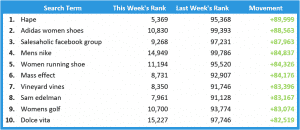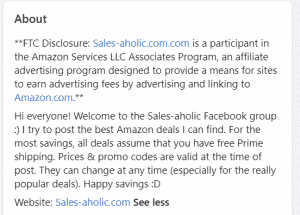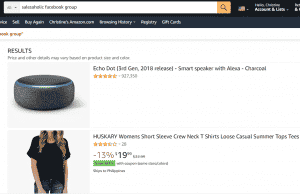Amazon Sues 10,000 Facebook Groups Over Fake Reviews

Administrators of more than 10,000 Facebook groups that are created mainly to solicit fake reviews are facing a lawsuit filed by Amazon last July 19. How is this different from other actions it has taken to fight against the growing problem of incentivized reviews?
Proactive Legal Action
In a press release, Dharmesh Mehta, Amazon’s vice president of Selling Partner Services, said that while they have people preventing fake reviews from being seen by customers, this lawsuit is a proactive approach towards targeting bad actors.
Aside from identifying the persons responsible, the company also aims to remove the fake reviews that they haven’t already detected.
One of the Facebook groups targeted by the suit is Amazon Product Review, which had around 43,000 members before it was taken down by Meta.
How Fake Review Facebook Groups Operate
Meta has its processes in place to detect and remove irrelevant and fake reviews. In fact, it has already removed a lot of these reviews and groups from the platform.
To hide their purpose for as long as they can, fake review groups use different techniques to not spell out trigger words like “refund” and “review.” They often do this by using asterisks and abbreviations.
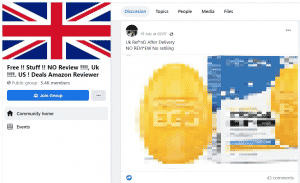
Reviewers receive money incentives or free products (usually through full refunds after leaving a positive review). Despite the ethical questions involved, a lot of people still participate because 1) it is a relatively easy way to earn money or obtain products and 2) because there’s a demand for the service.
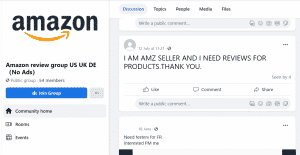
Amazon vs. Fake Reviews
Our latest study reveals that price is still the most important factor in Amazon customers’ buying decision, with only 12% saying that the number of reviews is their no. 1 consideration. However, 9 out of 10 customers still check product reviews on Amazon, and it’s still an advantage to get more positive reviews on your listings.
This lawsuit filed last July 19 against the administrators of more than 10,000 fake review Facebook groups is not the only action Amazon took.
- Last May, the ecommerce giant sued multiple companies and demanded that they disclose the list of sellers who used their services.
- In February, it went after fake review brokers AppSally and Rebatest.
- In 2021, it suspended thousands of Chinese sellers over incentivized reviews.
Soliciting fake Amazon reviews is a black hat tactic that a lot of sellers, especially those based in China, have been using. Solving the problem will involve a lot more lawsuits and stricter government regulations. Some countries, like the United Kingdom, are in the talks about making these acts clearly illegal.
In the United States, the FTC already has rules in place and has punished some companies before for violating the FTC guidelines, but it’s still not at a level that will really scare fake review sites away.
Facebook Group as a Search Term
Aside from fake review groups, Facebook also hosts other Amazon-related mini-communities. Some groups are created mainly to promote affiliate links, and one of them jumped out of the page this week.
EcoCrew generates a roundup of the top Amazon terms, which are then published in our newsletter. One of the things we noted from the July 3 to July 16 period is that the term “salesaholic facebook group” is among the top 3 keywords.
Sales-aholic is a Facebook group dedicated to promoting affiliate links and providing members with regular Amazon deals. According to their page’s FTC disclosure, it’s part of the Amazon Associates Program:
A quick search on Amazon.com reveals that the first organic result is Amazon’s own Echo Dot.
It is quite unusual for a Facebook group to be one of the top search terms. But because Brand Analytics identifies it as such, this means a lot of people are looking it up. We have yet to find out what this would mean for sellers or if this is even significant or just a one-off thing.

